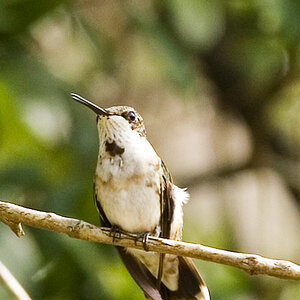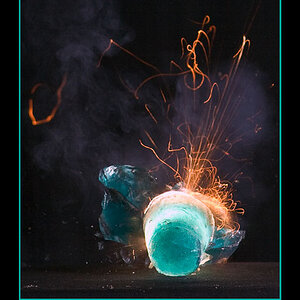abraxas
No longer a newbie, moving up!
- Joined
- Aug 15, 2006
- Messages
- 10,417
- Reaction score
- 9
- Can others edit my Photos
- Photos NOT OK to edit
The name of Micheal Kenna came up in the Edward Weston Quotes thread. They appear quite lengthy and just skimming through, some appear to possibly benefit from some editing.
His work
Quote source
His work
Quote source
I gravitate towards places where humans have been and are no more, to the edge of man’s influence, where the elements are taking over or convering man’s traces. - Michael Kenna
I do have strong convictions and political opinions, but I don’t think it’s necessary to imbue my photographic work with them. I use photography as a vessel for visual material to flow through, to encourage conversation with the viewer. I try to present a catalyst and invite viewers to tell their own stories. - Michael Kenna - in "Photographer's Forum Interview" - Winter 2003 by Claire Sykes
Getting photographs is not the most important thing. For me it’s the act of photographing. It’s enlightening, therapeutic and satisfying, because the very process forces me to connect with the world. When you make four-hour exposures in the middle of the night, you inevitably slow down and begin to observe and appreciate more what’s going on around you. In our fast-paced, modern world, it’s a luxury to be able to watch the stars move across the sky. - Michael Kenna - in "Photographer's Forum Interview" - Winter 2003 by Claire Sykes
The photographer Ruth Bernhard used to tell me that this is like asking somebody how they evolved their signature. It is not something I’ve ever worked on consciously. I think style is just the end result of personal experience. It would be problematic for me to photograph in another style. I’m drawn to places and subject matter that have personal connections for me and I photograph in a way that seems right. Where does it all come from, who knows? - Michael Kenna - on the question: "How did you evolve your style?" in "WRAPAROUND" Interview Fall 2003 / Vol. 1 No. 1 by Anne Telford
Photographing at night can be fascinating because we lose some of the control over what happens in front of the camera. Over a period of time the world changes; rivers flow, planes fly by, clouds pass and the earth's position relative to the stars is different. This accumulation of time and events, impossible for the human eye to take in, can be recorded on film. For the photographer, real can become surreal, which is exciting. During the day, when most photographs are made, scenes are usually viewed from the vantage-point of a fixed single light source, the sun. At night the light can come from unusual and multiple sources. There can be deep shadows which act as catalysts for our imagination. There is often a sense of drama, a story about to be told, secrets revealed, actors about to enter onto the stage. The night has vast potential for creativity. - Michael Kenna - in "WRAPAROUND" Interview Fall 2003 / Vol. 1 No. 1 by Anne Telford
This goes back to what projects I am working on. I don’t have any particular method to my madness. When I decide “what” I want to photograph, I choose the appropriate locations. Sometimes I choose “where” I want to photograph, then look for the “what” when I get there! Simple - no magic involved. I have a theory, which seems to work for me, that the best ideas come through thinking about something else! One of my hobbies is long distance running. I find there is something therapeutic and hypnotic in this activity, similar to practicing landscape photography. While thinking about one thing, and being active at the same time, other ideas float in and out. These floating ideas usually turn out to be the catalysts for my future projects. - Michael Kenna - on the question: "How do you choose your locations?" - in "WRAPAROUND" Interview Fall 2003 / Vol. 1 No. 1 by Anne Telford
Yes. The first time, I usually skim off the outer layer and end up with photographs that are fairly obvious. The second time, I have to look a little deeper. The images get more interesting. The third time it is even more challenging and on each subsequent occasion, the images should get stronger, but it takes more effort to get them. - Michael Kenna - On the question: "Do you like to work through things that way; to go back again and again photographing the same places. ..." from an interview conducted by Tim Baskerville for "Camera Darkroom", July 1995.
In my photographic work I’m generally attracted to places that contain memories, history, atmospheres and stories. I’m interested in the places where people have lived, worked and played. I look for traces of the past, visual fingerprints, evidence of activities - they fire my imagination and connect into my own personal experiences. Using the analogy of the theater, I would say that I like to photograph the empty stage, before or after the performance, even in between acts. I love the atmosphere of anticipation, the feeling in the air that events have happened, or will happen soon... - Michael Kenna - in "WRAPAROUND" Interview Fall 2003 / Vol. 1 No. 1 by Anne Telford
In my photography I try to be sensitive and responsive to whoever or whatever I meet. Everything else naturally follows. - Michael Kenna - in "WRAPAROUND" Interview Fall 2003 / Vol. 1 No. 1 by Anne Telford
..As a boy in school, my twin subject areas of strongest interest were Mathematics and Art. Photography combines the two so I feel I’ve really landed on my feet. I originally wanted to be a painter - I seemed to be good in that medium, but I didn’t see myself surviving in England. I felt that I needed a way to make a living and photography is an ideal vehicle for both survival and personal expression. - Michael Kenna - On the question: "Were you drawn to the technical aspects of the medium from the beginning?" - in "PhotoWork Interview" - Premiere Issue 1997 / Vol. 1 No. 1 by Dean Brierly
Perhaps most intriguing of all is that it is possible to photograph what is impossible for the human eye to see - cumulative time. - Michael Kenna - in "PhotoWork Interview" - Premiere Issue 1997 / Vol. 1 No. 1 by Dean Brierly
I often think of my work as visual haiku. It is an attempt to evoke and suggest through as few elements as possible rather than to describe with tremendous detail. - Michael Kenna - in "PhotoWork Interview" - Premiere Issue 1997 / Vol. 1 No. 1 by Dean Brierly
Yes. It’s possible to think of photography as an act of editing, a matter of where you put your rectangle pull it out or take it away. Sometimes people ask me about films, cameras and development times in order to find out how to do landscape photography. The first thing I do in landscape photography is go out there and talk to the land – form a relationship, ask permission, it’s not about going out there like some paparazzi with a Leica and snapping a few pictures, before running off to print them. - Michael Kenna - On the question: "Absolutely, I couldn’t agree more. I’ve said for years that far too many photographers tend to think of photography as an act of acquisitive rather than an act of submission" in "LensWork Interview" 10th Anniversary Issue No. 50 Dec. 03 - Jan. 04 by Brooks Jensen
..People ask me what lens do I use? I don’t even know, most times. They’ll ask what films I use? Well, it depends where I buy the film! If I’m in Japan I use Fuji because it happens to be readily available in Japan. If I’m in France I’ll buy Agfa, Ilford or Kodak. I find that when one has worked long enough, technical know-how becomes almost irrelevant. In photography, it’s not difficult to reach a technical level where you don’t need to think about the technique any more. I think there is far too much literature and far too much emphasis upon the techniques of photography. The make of camera and type of film we happen to use has little bearing on the results. - Michael Kenna - On the question: "So, you’ve essentially structured the practical and pragmatic part of your production process to make it interfere as little as possible with your creative life" in "LensWork Interview" 10th Anniversary Issue No. 50 Dec. 03 - Jan. 04 by Brooks Jensen
There are many characteristics associated with night photography that make it fascinating. We are used to working with a single light source, the sun, so multiple lights that come from an assortment of directions can be quite surreal, and theatrical. Drama is usually increased with the resulting deep shadows from artificial lights. These shadows can invite us to imagine what is hidden. I particularly like what happens with long exposures, for example, moving clouds produce unique areas of interesting density in the sky, stars and planes produce white lines, rough water transforms into ice or mist, etc. Film can accumulate light and record events that our eyes are incapable of seeing. The aspect of unpredictability inherent with night exposures can also be a good antidote for previsualization... - Michael Kenna - On the question: "Does photographing at night change your way of thinking about what you are photographing?" in "Photo Review" - January 2003 by Carole Glauber
When exposures last hours rather than fractions of a second, there is much time for watching. Sometimes it is a basic concern for security but at others it is a more meditational activity. I watch the sky and imagine what patterns the clouds and stars will make on my film. I watch the water, the leaves on the trees, passing cars, changing shadows, smoke from chimneys, whatever is around. Wind, rain, mist, etc., all have effects on the eventual image. We live pretty fast-paced lives so it is a luxury to be able to slow down and better appreciate some of the more subtle effects of nature that we can so easily miss or take for granted. - Michael Kenna - On the question: "In one of your books, you wrote, "I feel closer to the elements when I photograph at night, close to nature because I have to watch." What are you watching?" in "Photo Review" - January 2003 by Carole Glauber
Parks and gardens are the quintessential intimate landscapes. People use them all the time, leaving their energy and memories behind. It’s what’s left behind that I like to photograph. - Michael Kenna - in "Photographer's Forum Interview" - Winter 2003 by Claire Sykes
Nothing is ever the same twice because everything is always gone forever, and yet each moment has infinite photographic possibilities. - Michael Kenna - in "Photographer's Forum Interview" - Winter 2003 by Claire Sykes
Life is about turning up. The more you get yourself out there, whether you wake up at 5:00 a.m. to pouring rain or not, the more you’re likely to experience the wonderful happenings that are going on all around you. Sometimes the most interesting visual phenomena occur when you least expect it. Other times, you think you’re getting something amazing and the photographs turn out to be boring and predictable. So I think that’s why, a long time ago, I consciously tried to let go of artist’s angst, and instead just hope for the best and enjoy it. I love the journey as much as the destination. If I wasn’t a photographer, I’d still be a traveler. - Michael Kenna - in "Photographer's Forum Interview" - Winter 2003 by Claire Sykes


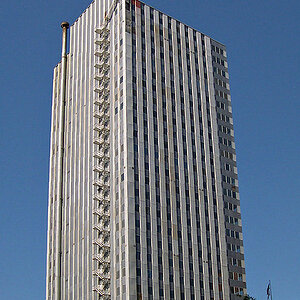
![[No title]](/data/xfmg/thumbnail/38/38734-a0c4ec46a440db881aca3700b0c62879.jpg?1619738703)
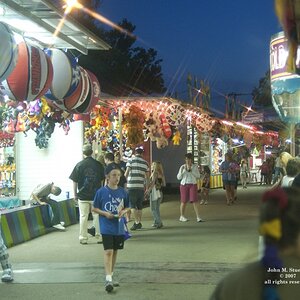
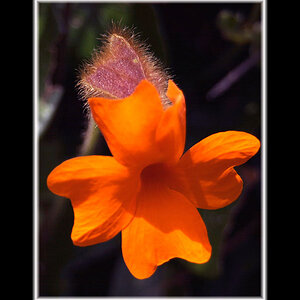
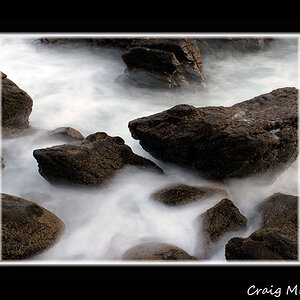
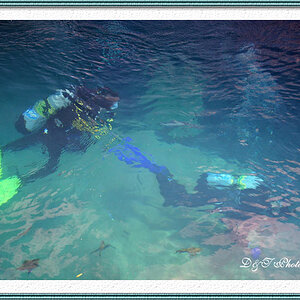
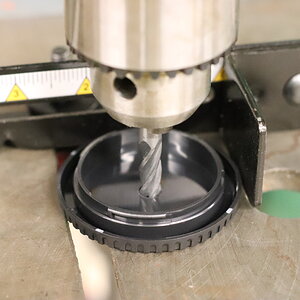
![[No title]](/data/xfmg/thumbnail/38/38738-7933157d1b8968c986eeeab2d1828524.jpg?1619738703)
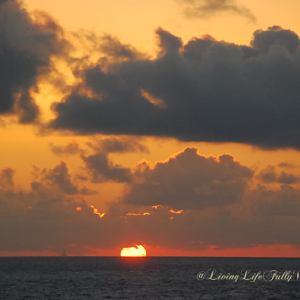
![[No title]](/data/xfmg/thumbnail/38/38736-5bc266b035e23faf5ad942bdd97466a8.jpg?1619738703)
